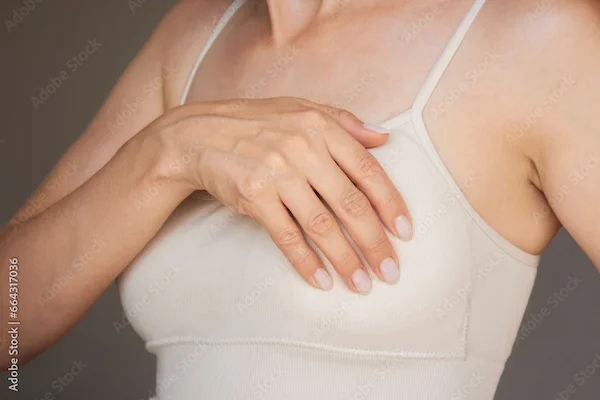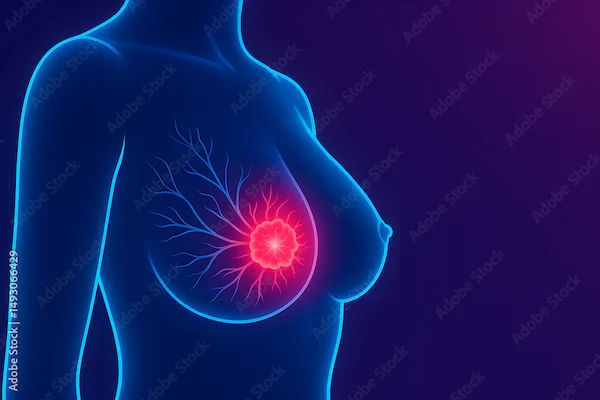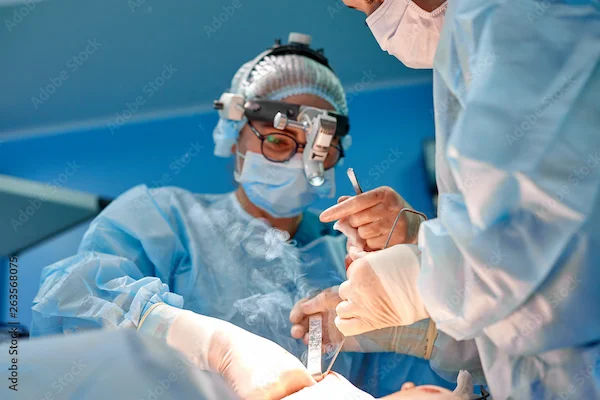Mastitis Overview Symptoms, Causes, and Treatment
Learn about mastitis, a common breast infection. Discover its symptoms, causes, and effective treatment options to find relief and support your health.

.webp?tr=q-80,f-webp,w-350,dpr-2,c-at_max 700w)
Mastitis is a common condition that causes inflammation in the breast tissue, often leading to pain, swelling, and discomfort. While it is most frequently seen in breastfeeding mothers (lactational mastitis), it can also affect women who are not breastfeeding (nonlactational mastitis) and, in rare cases, men.
If you or someone you know is experiencing symptoms of mastitis, understanding the condition can help in managing it effectively. Let’s explore what mastitis is, its symptoms, causes, and treatment options.
What Are the Symptoms of Mastitis?
Mastitis can develop suddenly, and its symptoms may include:
• Breast pain, tenderness, or warmth – The affected breast may feel sore and hot to the touch.
• Swelling and redness – A red, wedge-shaped area may appear on the breast.
• Fever and chills – Many women experience flulike symptoms, including a high temperature.
• Fatigue and body aches – You may feel unusually tired or achy.
• Nipple discharge – Sometimes, pus or blood may be present in breastfeeding mothers.
If you notice these symptoms, it’s important to seek medical advice, especially if the pain worsens or fever persists.
Get Your Symptoms Checked
What Causes Mastitis?
Mastitis usually occurs due to:
1. Milk Stasis (Blocked Milk Ducts)
• When breast milk isn’t fully drained during breastfeeding, it can clog the milk ducts, leading to inflammation.
2. Bacterial Infection
• Bacteria (often from the baby’s mouth or skin) can enter through cracked nipples, causing an infection.
3. Poor Latching or Infrequent Feeding
• Incorrect breastfeeding techniques or skipping feedings can increase the risk.
4. Tight Clothing or Pressure on Breasts
• Wearing tight bras or sleeping in positions that compress the breasts may contribute.
5. Weakened Immune System
• Stress, fatigue, or illness can make you more prone to infections.
How Is Mastitis Treated?
The good news is that mastitis is treatable, and early intervention can prevent complications.
1. Home Remedies & SelfCare
• Continue breastfeeding – Emptying the breast helps clear blockages.
• Warm compresses – Applying warmth before feeding can improve milk flow.
• Massage gently – Lightly massaging the affected area while feeding may help.
• Rest and hydration – Getting enough sleep and drinking fluids supports recovery.
• Pain relief – Over the counter painkillers like ibuprofen can reduce discomfort.
2. Medical Treatment
If symptoms don’t improve within 2448 hours or if you have a high fever, consult a doctor. They may prescribe:
• Antibiotics – If a bacterial infection is present.
• Pain relievers – To manage discomfort.
In rare cases, an untreated infection can lead to a breast abscess, which may require drainage.
Can Mastitis Be Prevented?
Yes! Here are some tips to reduce the risk:
• Ensure proper breastfeeding techniques – A lactation consultant can help with latching.
• Avoid skipping feedings – Regular feeding prevents milk buildup.
• Wear loose, comfortable clothing – Tight bras can restrict milk flow.
• Keep nipples clean and dry – Prevent cracks that allow bacteria entry.
• Alternate breastfeeding positions – Helps drain all milk ducts evenly.
When to See a Doctor?
Seek medical help if:
• Symptoms worsen or don’t improve in 12 days.
• You notice pus or blood in breast milk.
• Fever is high (above 101°F or 38.3°C).
• You develop a painful lump that doesn’t go away.
If you're struggling with mastitis, Apollo 24|7 offers expert consultations with gynecologists and lactation specialists who can guide you through treatment. You can easily book an appointment online for personalized care.
Final Thoughts
Mastitis can be painful and frustrating, but with the right care, most women recover quickly. If you're breastfeeding, don’t hesitate to ask for help—whether from a doctor, lactation consultant, or support group. Your health and comfort matter!
If you suspect mastitis or need advice, Apollo 24|7 is here to help. Schedule a consultation today and get the care you deserve.
Stay healthy and take care!
Consult Top Obstetrician-Gynaecologists
Get Your Symptoms Checked

Dr. Debashree Saha
Obstetrician and Gynaecologist
4 Years • MBBS, MS (Obstetrics & Gynaecology)
Kolkata
DR. DEBASHREE SAHA Clinic, Kolkata

Dr. Ritika Khurana
Obstetrician and Gynaecologist
16 Years • MBBS, DGO(GYNAECOLOGY AND OBSTETRICS)
Pune
Dr Rupali and Dr Ritika, Pune

Dr. Chaitali Roy
Obstetrician and Gynaecologist
28 Years • MBBS , MS (Obstetrics & Gynaecology)
Kolkata
Roy's Clinic, Kolkata

Dr Homeira Nishat
Obstetrician and Gynaecologist
34 Years • MBBS, Diploma in Obstetrics & Gynaecology
Bengaluru
Cure Hospital and Clinic, Bengaluru
Dr Arpita
Obstetrician and Gynaecologist
6 Years • MS OBG
Bengaluru
Apollo Medical Center, Marathahalli, Bengaluru
Consult Top Obstetrician-Gynaecologists

Dr. Debashree Saha
Obstetrician and Gynaecologist
4 Years • MBBS, MS (Obstetrics & Gynaecology)
Kolkata
DR. DEBASHREE SAHA Clinic, Kolkata

Dr. Ritika Khurana
Obstetrician and Gynaecologist
16 Years • MBBS, DGO(GYNAECOLOGY AND OBSTETRICS)
Pune
Dr Rupali and Dr Ritika, Pune

Dr. Chaitali Roy
Obstetrician and Gynaecologist
28 Years • MBBS , MS (Obstetrics & Gynaecology)
Kolkata
Roy's Clinic, Kolkata

Dr Homeira Nishat
Obstetrician and Gynaecologist
34 Years • MBBS, Diploma in Obstetrics & Gynaecology
Bengaluru
Cure Hospital and Clinic, Bengaluru
Dr Arpita
Obstetrician and Gynaecologist
6 Years • MS OBG
Bengaluru
Apollo Medical Center, Marathahalli, Bengaluru




